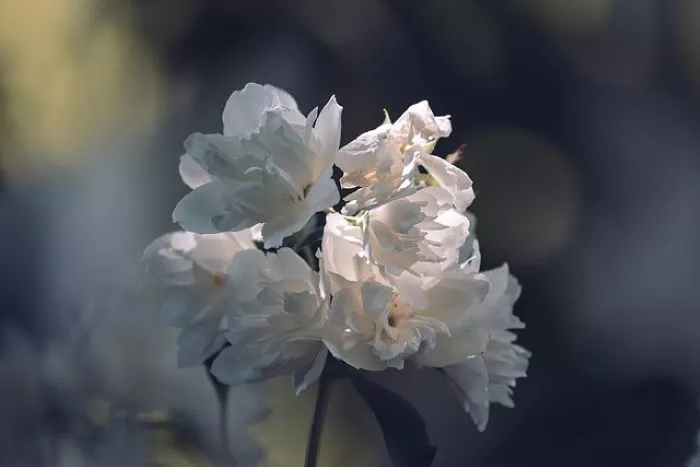Jasmine flowers are renowned for their beauty and captivating fragrance. These delicate blooms have a rich history and cultural significance, making them special in many ways. Jasmine belongs to the genus Jasminum, which includes over 200 species. Each species has unique characteristics, but they all share common traits that make them beloved around the world. This article will explore what makes jasmine flowers special, including their fragrance, cultural significance, medicinal properties, and uses in various industries.
The Enchanting Fragrance of Jasmine
One of the most notable features of jasmine flowers is their enchanting fragrance. The scent of jasmine is often described as sweet, rich, and intoxicating. This aromatic quality has made jasmine a popular choice in perfumery and aromatherapy. The essential oil extracted from jasmine flowers is highly valued for its soothing and uplifting properties.
Jasmine flowers release their most potent fragrance in the evening. This nocturnal blooming behavior attracts pollinators, such as moths, which are drawn to the sweet scent. The ability of jasmine to perfume the air, especially during warm nights, enhances its allure and makes it a favorite in gardens and landscapes.
Cultural Significance of Jasmine
Jasmine flowers hold significant cultural importance in various parts of the world. In many cultures, jasmine symbolizes love, purity, and sensuality. In India, jasmine is often used in wedding ceremonies and religious rituals. The flowers are woven into garlands and worn by brides, representing beauty and devotion.
In the Middle East, jasmine is associated with hospitality and is commonly used to adorn homes and public spaces. The scent of jasmine is believed to bring good fortune and happiness. In some cultures, jasmine tea is a traditional beverage served to guests as a sign of welcome and respect.
In Western cultures, jasmine is often associated with romance. Its sweet fragrance is used in perfumes and scented candles, creating an atmosphere of intimacy and warmth. The cultural significance of jasmine adds to its charm and appeal.
Medicinal Properties of Jasmine
Jasmine flowers are not only beautiful but also have medicinal properties. In traditional medicine, jasmine has been used for centuries to treat various ailments. The flowers are known for their anti-inflammatory, antiseptic, and calming effects. Jasmine tea, made from the flowers, is often consumed for its soothing properties.
Research suggests that jasmine may help reduce anxiety and promote relaxation. The aroma of jasmine is believed to have mood-enhancing effects, making it a popular choice in aromatherapy. Inhaling jasmine essential oil can help alleviate stress and improve overall well-being.
Jasmine is also used in skincare. Its essential oil is often included in lotions and creams for its moisturizing and healing properties. The antioxidants found in jasmine may help protect the skin from damage and promote a healthy complexion.
Uses of Jasmine in Various Industries
Jasmine flowers have a wide range of applications across different industries. The most prominent use of jasmine is in the perfume industry. The essential oil extracted from jasmine flowers is a key ingredient in many high-end fragrances. Its rich and complex scent adds depth and allure to perfumes, making it a staple among perfumers.
In the culinary world, jasmine is often used to flavor teas and desserts. Jasmine tea, made by infusing green or white tea leaves with jasmine blossoms, is a popular beverage known for its delicate aroma and taste. The flowers can also be used to infuse syrups and sauces, adding a unique floral note to culinary creations.
Jasmine is also used in the production of cosmetics and personal care products. Its fragrance and beneficial properties make it a popular choice for lotions, shampoos, and soaps. The soothing qualities of jasmine are particularly valued in products aimed at promoting relaxation and self-care.
Jasmine in Gardening and Landscaping
Jasmine flowers are popular choices for gardening and landscaping due to their beauty and fragrance. Many species of jasmine are hardy and easy to grow, making them suitable for a variety of climates. They can be trained to climb trellises, fences, or walls, adding vertical interest to gardens.
Jasmine plants thrive in well-draining soil and prefer full sun to partial shade. Regular pruning encourages bushier growth and more abundant flowering. The fragrant blooms of jasmine can enhance outdoor spaces, creating inviting environments for relaxation and enjoyment.
In addition to their aesthetic appeal, jasmine plants can attract beneficial insects, such as bees and butterflies. By planting jasmine in gardens, gardeners can support local ecosystems and promote biodiversity.
Conclusion
Jasmine flowers are special for many reasons. Their enchanting fragrance, cultural significance, medicinal properties, and versatile uses make them a beloved choice worldwide. Whether used in perfumery, culinary creations, or traditional medicine, jasmine continues to captivate and inspire. Its beauty and aroma enrich our lives and connect us to nature. By understanding what makes jasmine flowers unique, we can appreciate their role in our gardens, cultures, and well-being.


